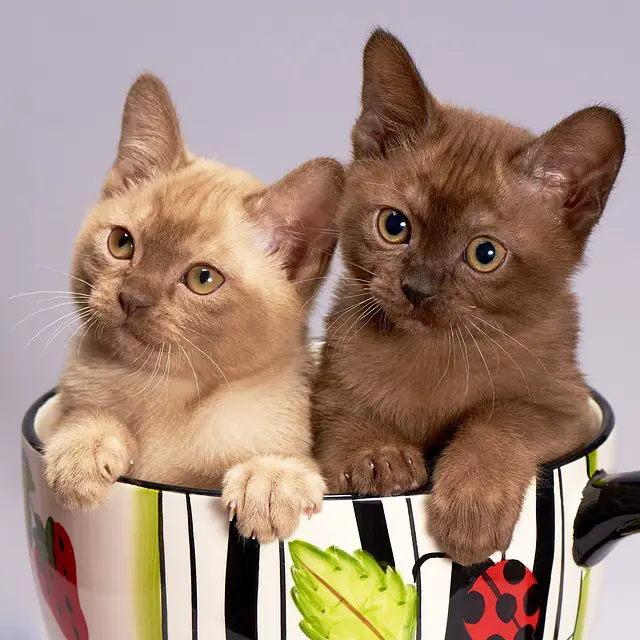The answer to the age-old question, “Do cat breeds matter?” is yes.
But not in the way you might think. While there are many different breeds of cats, each with its unique traits and characteristics, most cats are mixed breeds—meaning they don’t belong to a single, purebred variety.
As such, it can be challenging to determine precisely what kind of cat you have. That said, there are still some key considerations when understanding the nuances of different cat breeds. So let’s examine why cat breeds matter and what you need to know about your feline friend.
Do cat breeds matter?
When considering whether breed matters when selecting a cat, experts generally agree that the temperament of any particular cat you may be looking at is more important than breed alone
. While certain species can differ, even cats within the same species can have different personalities and energy levels.
Because of this, knowing which cat characteristics are suitable for your lifestyle and environment will be vital to finding the right pet for you – and no matter what kind of cat it might be, choosing a feline companion should always be based on research into its disposition and behavior.
With care and knowledge, anyone can find the perfect cat – breed or not.
Breed Traits & Characteristics
As a responsible cat owner, knowing that different breeds can have strikingly different temperaments and characteristics is essential.
While most cats are trainable and quite intelligent, some breeds – such as the Japanese Bobtail, Maine Coon, and Siamese – have particular traits that might make them more suitable for your lifestyle.
Additionally, certain breeds may be prone to certain illnesses or conditions, so research is vital when choosing which cat you’d like in your home.
Over the years, there has been an increased emphasis on mixed breeds versus purebreds, and indeed both have merits.
The critical takeaway is that regardless of what kind of cat you choose, it’s paramount to provide your four-legged friend with lots of love and patience while they settle into their new home.
Behavioral Considerations
The breed of a cat plays a significant role in behavior.
Some cats are more active than others, while some are better suited to homes without other animals due to their high prey drive.
Researching the breed, you’re considering is best to ensure its behaviors fit your lifestyle and family dynamic.
For example, Siamese is highly vocal and demanding cats, so they need owners to give them plenty of attention.
On the other hand, British Shorthairs are known for being entirely independent and require less maintenance.
In all cases, providing playtime and activities to keep your cat stimulated throughout the day is essential.
By understanding what you can expect from different breeds, you can make an informed decision about which best fits your home and family.
Size & Lifespan Differences
Regarding the differences between cat breeds, size can be one of the most pronounced.
Smaller breeds like the Singapura and Devon Rex tend to have shorter lifespans due to their size, typically seven to twelve years.
In contrast, larger breeds like the Maine Coon and Ragdoll can typically live up to fifteen years or more.
The coat type and length of a particular breed can also factor into the size – a long-haired Maine Coon is much bigger than its short-haired counterpart.
Furthermore, specific health concerns are associated with certain breeds, so prospective cat owners must research before deciding on their perfect pet.
Ultimately, while there are considerable size and lifespan differences between various cat breeds, individual cats still have unique characteristics which make them lovable companions, which is why breed should not be the defining factor in choosing a pet.
Conclusion
Overall, while most cats are mixed breed animals—which makes determining precisely what breed they are complex—it’s still important to consider the nuances between different types of breeds when selecting a new feline friend or to care for an existing one.
Understanding things like size and lifespan differences between various types of cats can help inform us on how best to care for them daily and prepare us in advance should any behavioral issues arise. Ultimately, considering these things will ensure you and your pet have many happy years together.
[su_box title=”Affiliate Disclosure”]This website is supported by its readers. Please assume that all links are affiliate links. If you make a purchase from one of the links we will make a commission from Amazon. Thank you.[/su_box]




